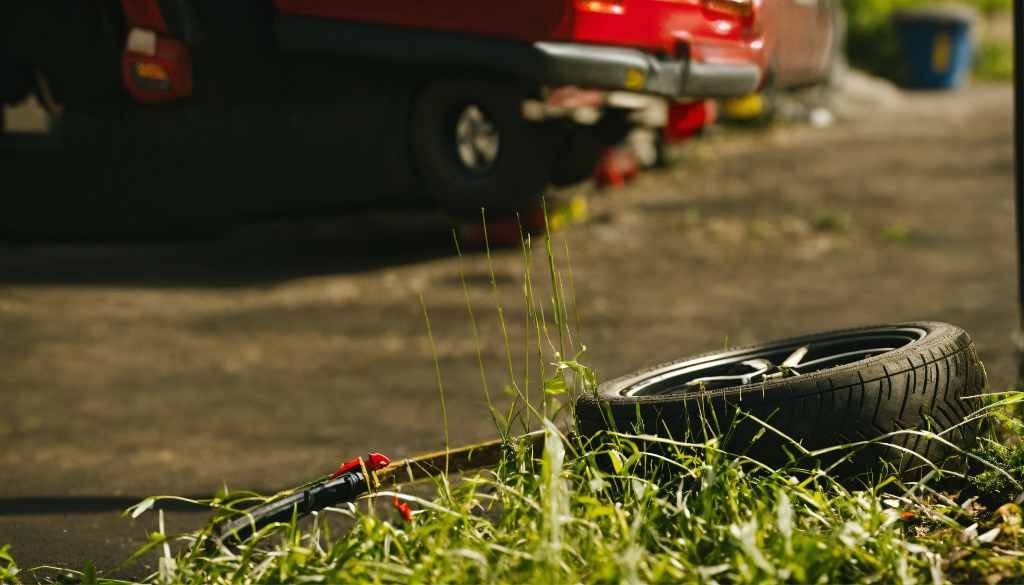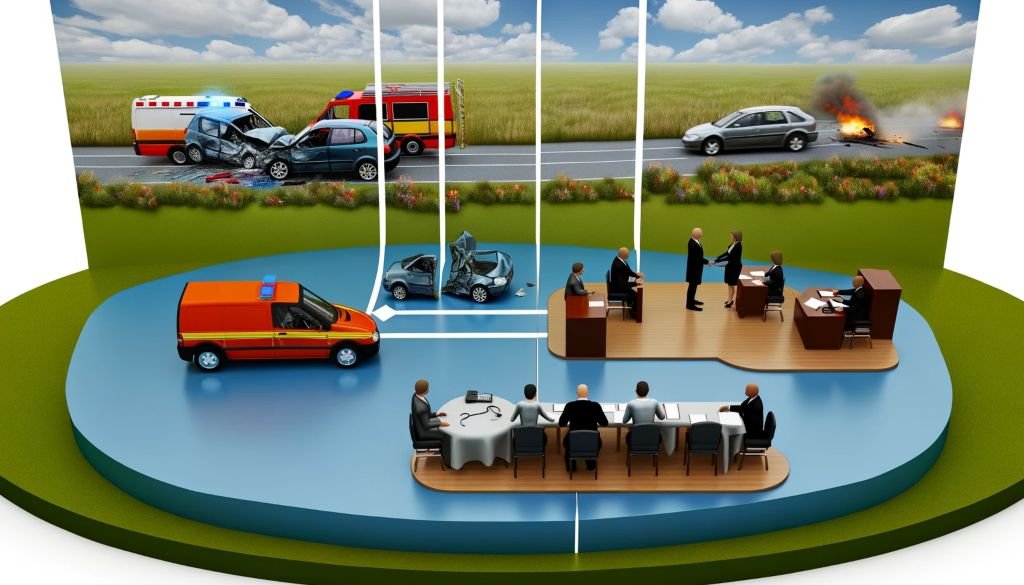In the aftermath of a car accident, settling is one of the most pressing concerns for those involved. This journey from filing a claim to receiving compensation can be filled with uncertainties, complexities, and varying timelines. Understanding the factors and stages involved can help you navigate this process with clarity and patience.
The main intention of this article is to provide a comprehensive understanding of the timeline and process involved in settling a car accident claim. It aims to educate readers about the various stages, factors that influence the duration of a settlement, the types of damages that can be recovered, and strategies to potentially expedite the process.
People should read this article if they:
- Have been involved in a car accident and need to navigate the settlement process with their insurance company or the other party’s insurer.
- Want to understand the initial steps to take after an accident, such as notifying insurance providers, gathering evidence, and seeking medical attention?
- Need insights into the evaluation and negotiation stages, including assessing damages, consulting experts, and dealing with insurance adjusters.
- Desire to learn about the damages they may be entitled to recover, such as medical expenses, lost wages, emotional distress, and punitive damages.
- Seek guidance on the factors that can affect the timeline of a car accident settlement, such as case complexity, severity of injuries, and insurance company policies.
Initial Steps After a Car Accident

Immediately following a car accident, the first step involves contacting insurance companies. Promptly notifying insurance providers initiates the claims process and allows for an assessment of the damages incurred. Simultaneously, gathering evidence and documentation is crucial. This includes collecting accident reports, witness statements, and photographs and documenting medical expenses, repair costs, and other damages.
Seeking medical attention is crucial for both health and legal reasons. It’s essential to prioritize immediate medical treatment to address injuries sustained during the accident. Documenting injuries and treatment received is crucial for personal health records and insurance purposes and providing evidence of the extent of damages incurred.
Evaluating and Negotiating
Once the initial steps are taken, the evaluation and negotiation process begins. This involves assessing the damages, including medical expenses, property damage, and lost wages. Consulting with medical professionals and other experts may be necessary to accurately evaluate the long-term effects of injuries. Negotiating with insurance adjusters follows, where evidence and documentation are presented to support compensation claims.
In many jurisdictions, the legal framework surrounding car accident settlements is governed by state laws, which dictate how fault and liability are determined. For instance, some states follow a “fault” system, where the at-fault party’s insurance covers the damages, while others adhere to a “no-fault” system, where each party’s insurance pays for their expenses regardless of fault. Colorado, for example, is a “fault” state. If you were involved in a Colorado car crash, a Denver accident attorney can help you understand who is liable for your accident.
Furthermore, understanding the concept of comparative negligence is crucial. In states that apply relative negligence rules, a party’s compensation may be reduced based on their degree of fault in the accident. This means that even if you are partially responsible for the accident, you may still be entitled to compensation, albeit in a reduced amount.
Factors That Affect Settlement Timelines
Many factors affect the timeline of a car accident settlement. The case’s complexity, including disputed liability or unclear circumstances, can prolong the process. Additionally, the severity of injuries and required medical treatment play a significant role. Cooperation between parties involved, such as insurance companies, legal representatives, and accident victims, is vital for expediting the process.
Insurance company policies and procedures can also impact settlement timelines. Adherence to internal processes, backlogs, or administrative hurdles may cause delays. Disputes over liability, challenges with gathering evidence, and delays in medical treatment and documentation are common roadblocks that can extend the settlement process.
In addition to liability insurance, which covers damages caused by the insured party, individuals may have personal injury protection (PIP) or medical payments coverage to help pay for medical expenses regardless of fault. Moreover, uninsured/underinsured motorist (UM/UIM) coverage is crucial in cases where the at-fault party lacks insurance or has insufficient coverage to compensate the victim entirely. UM/UIM coverage can bridge the gap and ensure the victim receives adequate compensation for their losses.
Damages You Can Recover
Beyond the immediate medical expenses and property damage, car accident victims may be entitled to various damages. These can include:
- Emotional Distress: Reimbursement for psychological trauma, such as anxiety, depression, or post-traumatic stress disorder (PTSD), resulting from the accident.
- Loss of Consortium: Compensation for the loss of companionship, affection, or support suffered by the victim’s spouse or family members.
- Punitive Damages: Additional compensation awarded to punish the at-fault party for egregious behavior, such as drunk driving or reckless conduct.
- Compensation for Injuries: Covers medical costs and provides damages for any physical or psychological injuries sustained in the accident.
Understanding these types of damages and how they are calculated can help accident victims pursue fair and comprehensive compensation in their settlement negotiations.
Expediting Settlements

Despite the challenges mentioned above, there are strategies for expediting settlements. Promptly providing requested information, seeking legal representation, and pursuing alternative dispute resolution methods can help accelerate the process. However, managing expectations and understanding that timelines may vary based on individual circumstances is essential.
Navigating a car accident settlement requires patience, perseverance, and understanding. While the process may be complex and time-consuming, being informed about the stages involved and potential challenges can empower individuals to advocate for fair and timely resolutions to their claims. By prioritizing communication, cooperation, and strategic advocacy, individuals can work towards achieving a satisfactory outcome and moving forward in the aftermath of a car accident.
Real Case Study Examples:
- Sarah was involved in a rear-end collision caused by a distracted driver. Despite seeking immediate medical attention and providing all necessary documentation to the insurance company, the settlement process was prolonged due to disputes over liability. Sarah’s car accident attorney played a crucial role in gathering evidence, negotiating with the insurance adjuster, and eventually securing a fair settlement that covered her medical expenses, lost wages, and pain and suffering.
- After a head-on collision with an uninsured motorist, John was left with significant injuries and mounting medical bills. With the help of his car accident lawyer, John could tap into his own uninsured/underinsured motorist (UM/UIM) coverage to recover compensation for his losses. The settlement process was expedited by promptly providing the requested information and cooperating with the insurance company’s investigation.
- In a tragic case, Emily’s husband was killed in a car accident caused by a drunk driver. Emily’s attorney pursued a settlement that included compensation for emotional distress, loss of consortium, and punitive damages against the at-fault driver. The case was complex due to the severity of the incident, but Emily’s legal representation ensured she received a comprehensive settlement that accounted for her significant losses.
People, Also Search
What are the initial steps to take after a car accident?
The initial steps after a car accident include contacting insurance companies, gathering evidence (accident reports, witness statements, photographs), documenting damages (medical expenses, repair costs), and seeking medical attention for injuries sustained.
What factors can affect the timeline of a car accident settlement?
- Factors affecting the settlement timeline include the case’s complexity, severity of injuries, cooperation between parties, insurance company policies and procedures, disputes over liability, and challenges in gathering evidence or obtaining medical treatment.
What types of damages can be recovered in a car accident settlement?
- Potential damages that can be recovered include medical expenses, lost wages, property damage, emotional distress, loss of consortium, punitive damages (for egregious behavior), and compensation for physical or psychological injuries.
How can seeking legal representation help in the settlement process?
- Legal representation from a car accident attorney can assist in gathering evidence, negotiating with insurance adjusters, understanding state laws and liability rules, consulting with experts to evaluate damages, and ensuring that clients receive fair and comprehensive compensation.
What strategies can help expedite a car accident settlement?
- Strategies that may help expedite a settlement include promptly providing requested information, seeking legal representation, cooperating with insurance investigations, and pursuing alternative dispute resolution methods when appropriate. However, managing expectations and understanding that timelines may vary based on individual circumstances is essential.
